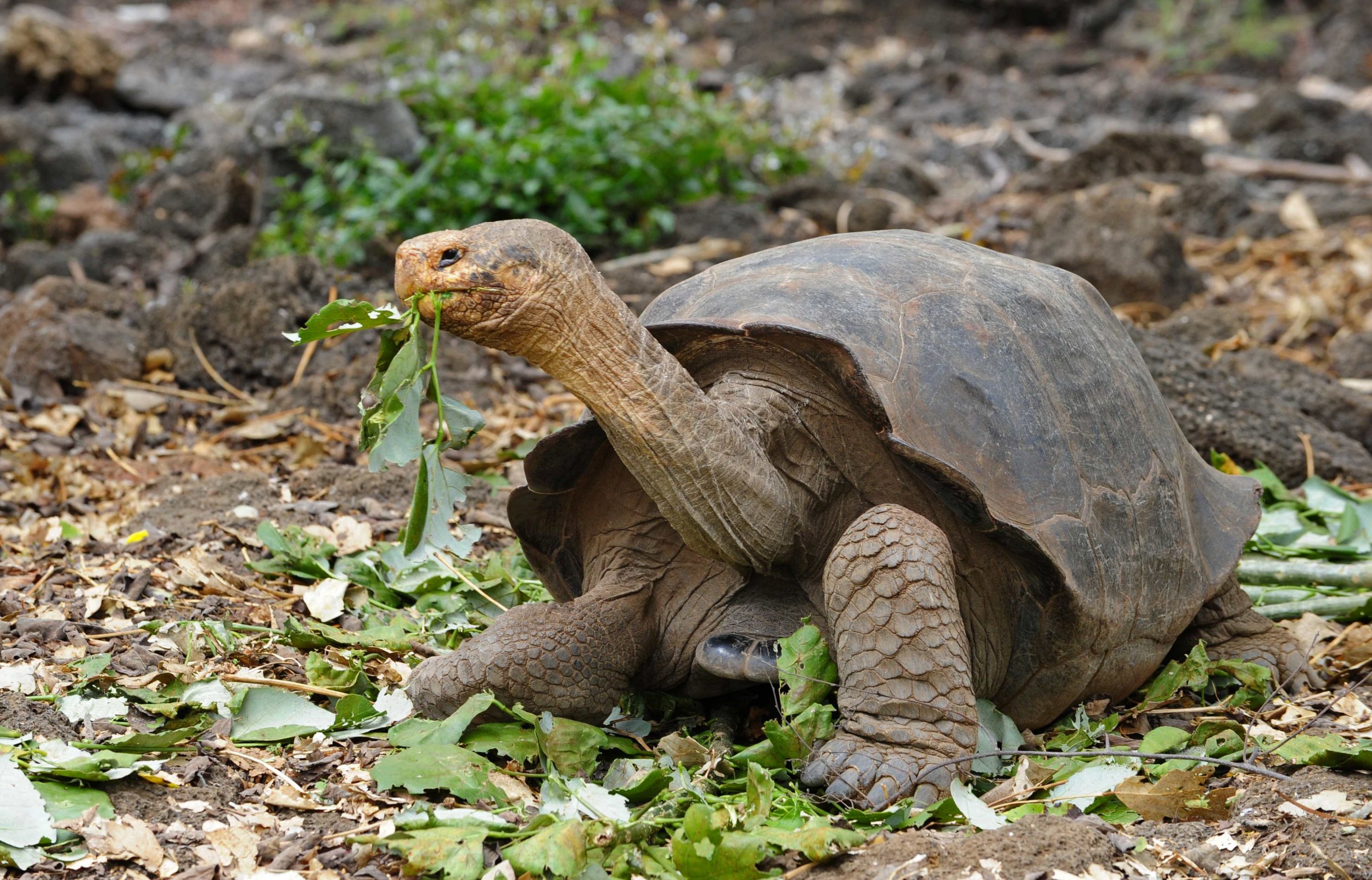
The Galápagos giant tortoise is one of the longest living creatures on earth, with a life span often reaching over 100 years, according to National Geographic. A new study has pointed to genetic clues that could explain the length of the tortoise lifespan, and could be applied to human life in the future.
The study, which was published in a paper Monday by Nature Ecology & Evolution, focused on two tortoises, one named Lonesome George. It found tortoises, like George, have a handful of gene variants which promote a healthy, full immune system, quick DNA repair and a natural defense against cancer, according to the paper. These findings shed light on the top-tier health defenses and smooth aging mechanisms in the animals.
The study compared the genes of Lonesome George to a Aldabra giant tortoise from the Seychelles who was a close cousin of George. Both species were expected to live far upwards of 100 years, the Aldabra even being rumored to have survived around 250. The DNA from each were then compared among a variety of other animals to find the results. Some animal DNA included came from a human, a chicken, a flycatcher, a mouse, a dog and a gecko among a list of others, according to the paper.
The Galápagos tortoise is not endangered, but is listed as a vulnerable species, according to National Geographic. Lonesome George, who died in 2012, was the last giant tortoise on Pinta Island. For a time, the Pinta Island tortoise was its own classification of the Galápagos tortoise.
He was around 100 years old when he died, and was long celebrated as the last giant tortoise of Pinta Island.
It's estimated five subspecies of the Galápagos tortoise have been extinct since they were first studied by Charles Darwin, who used their evolutionary defenses, like a distinct shell, to define his theory of evolution. Over 100,000 have been killed in the times of hunters, pirates and whalers who ate the tortoises on their travels, according to National Geographic.
While the Galápagos tortoise is on the list of longest living animals, they fall short of a few animals. The bowhead whale is known to have a lifespan of around 200 years, as is the Greenland shark. One shark, however, was recorded to live 400 years, according to One Kind Planet. The immortal jellyfish is also a contender, as it does not seem to die from natural causes, though the jellyfish falls prey to other sea creatures.
Uncommon Knowledge
Newsweek is committed to challenging conventional wisdom and finding connections in the search for common ground.
Newsweek is committed to challenging conventional wisdom and finding connections in the search for common ground.
About the writer
Kelly started a career in journalism after completing her education at The New School in New York City. She currently ... Read more
To read how Newsweek uses AI as a newsroom tool, Click here.








